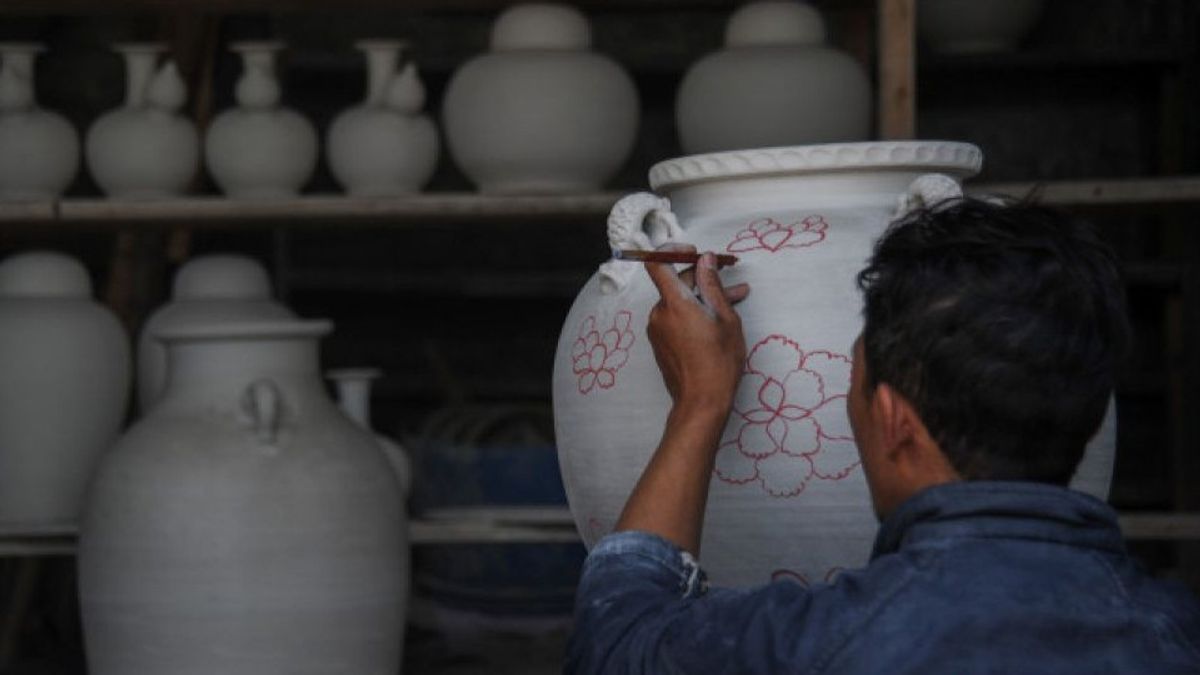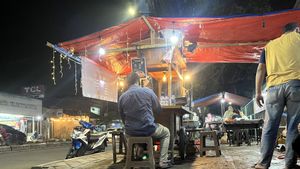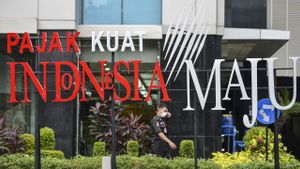JAKARTA - The plan to implement the Anti-Dumping Import Duty (BMAD) policy on imported ceramics from China has become a public concern in recent times.
Functional Officials of Industry Trustees at the Directorate of Semen, Ceramics and Processing of Non-Aligned Excavation Materials at the Ministry of Industry, Ashady Hanafie, also revealed the chronology of the implementation of international trade through trade remedies to save the domestic ceramic industry.
He said this ceramic tile had actually had serious problems for a long time. He said, trade remedies has been worn for this industry since 2016.
"This ceramic tile has actually had serious problems for a long time and so the trade remedies worn have started in 2016, we have started applying for it. Because it has been difficult (to suffer)," he said in an Indef discussion, in Jakarta, Tuesday, July 16.
Furthermore, he explained that the problems faced by the ceramic industry emerged in 2015 when gas prices rose. The increase in gas has made the performance of the ceramic industry decline. In fact, it also encourages a decrease in competitiveness.
"So it started to get worse, why did our ceramic industry go down, because there was an increase in gas prices. So before 2015 we were victorious, our competitiveness was high. Even utilization was above 90 percent. After that (the price of gas) went up and down, our drop was low," he said.
This condition, he continued, was exacerbated by the entry of imported products into the country. As a result, the domestic ceramic industry can no longer compete.
"We are less competitive, exacerbated by imports entering. Because if imports are cheap, they will definitely enter, because in Indonesia it is still a consumer concern for prices," he explained.
Because of this condition, continued Ashady, in March 2018 the Indonesian Ceramic Industry Association (ASAKI) represented five IDNs, PT Arwana Citramulia Tbk; PT Muliakeramik Indaraya; PT Jui Shin Indonesia; PT Asri Pancawarna and PT Angs Daya submitted a request for an investigation into security measures (safeguards) for importing ceramics to KPPI.
"So starting in 2018, we will start to include it related to safeguards first," he explained.
Then in September 2018, Ashady continued, the Minister of Finance set Regulation of the Minister of Finance (PMK) Number 119/PMK.010/2018 concerning the Imposition of Safeguard Measure Import Duty (BMTP) on imports of ceramic tiles for three years with tariffs, the first year 23 percent, the second year 21 percent, and the third year 19 percent.
"Well, on the way, it turns out that imports are still coming in, still running. Then we will extend it again in 2021, finally it will be extended for another three years, it will end in 2024," he said.
The first year is 17 percent, the second year is 15 percent and the third year is 13 percent. So the trend is that it must not be increased again, if it is high, it goes down, it goes down, it goes down like that," he continued.
On March 15, 2023, the Indonesian Anti-Dumping Committee (KADI) began an anti- dumping investigation into the import of ceramic tiles from China based on Asaki's request representing three IDNs, namely PT Jui Shin Indonesia; PT Satyaraya Keramindo Indah and PT Angsa Daya (a total share of 26 percent). Where the investigation period was carried out, the losses were carried out from July 1, 2019 to June 30, 2022.
SEE ALSO:
"Here it turns out that the imports are getting worse, the more they enter, so we take action that we apply again for our anti dumping starting on March 15, 2023, has been included by the industry," he explained.
In May 2024, KADI published the Main Data Report for Anti-Dumping Investigation with the provisional results that sales and capacity had increased but the Applicant IDN suffered losses because DN prices had dropped while HPP had increased. In addition, supplies also continue to grow.
Then, on June 15, KADI held a public hearing. Then in July 2024, KADI published a Final Investigation Report with the recommendation of imposition of BMAD for five years.
"Then it was continued with the issuance of a report from KADI and May, July, at the end of July, a final report was issued that recommended or proposed the imposition of BMAD fees for five years of tariffs between 100.12 percent to 109.88 percent. So with that we will propose or continue the process for BMAD like that," he explained.
The English, Chinese, Japanese, Arabic, and French versions are automatically generated by the AI. So there may still be inaccuracies in translating, please always see Indonesian as our main language. (system supported by DigitalSiber.id)
















